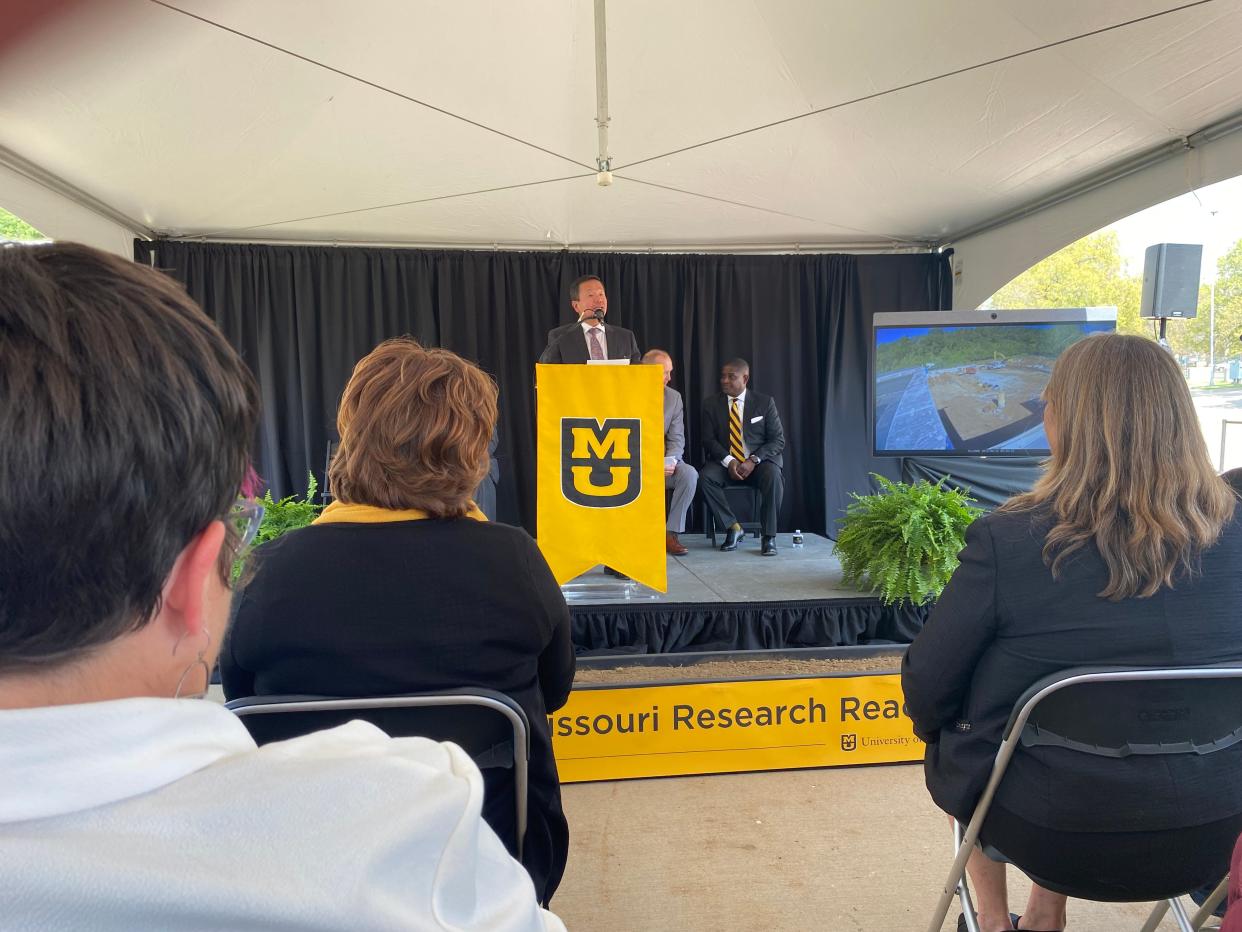University of Missouri extends test-optional admission for a year

The University of Missouri System Board of Curators on Thursday extended test-optional admission for undergraduate students for one year at the University of Missouri, Missouri University of Science and Technology and University of Missouri-St. Louis.
The meeting was in Memorial Union at the University of Missouri.
Discussion among the curators questioned the wisdom of future extensions.
"The days of this is numbered, in my opinion" said board member Todd Graves.
One more year is his limit, Graves said.
"It creates a gaming of the system that I'm willing to live with for another year," Graves said.
The recommendation came from the University of Missouri Faculty Council in a unanimous vote.
The best students want to challenge themselves, said board member Keith Holloway.
"I think the best and the brightest want to take tests," Holloway said.
The test-optional admission was a good solution during the COVID pandemic, when it began, said chairwoman Robin Wenneker.
"Those were tough times," she said, adding it requires those in admissions to work harder.
The University of Missouri-Kansas City has permanent test-optional admission for undergraduate students.
At the University of Missouri-St. Louis, Chancellor Kristin Sobolik said the institution looks at new students admitted with tests and those admitted without test scores.
"What we see so far is there is no statistically significant difference between the students who take the tests and the students who don't," Sobolik said.
"The landscape is changing," said Mun Choi, system president and MU chancellor. "Some universities are going back to test-mandatory."
Dartmouth recently returned to requiring students to take admissions tests.
Columbia Public Schools pays for students to take the ACT, but fewer students are taking it because of test-optional admissions, district spokeswoman Michelle Baumstark said when state annual performance reporters were released.
The district encourages students to take the ACT, because its the basis of many scholarships, she said.
The enrollment managers at the universities all encourage students to take the tests, Choi said. during a news conference.
While MU is experiencing record student applications this year, Choi said requiring the admission tests would decrease applications, but he couldn't estimate how much it would decrease.
The curators will continue to monitor the trends, Wenneker said during the news conference.
Research spending
Choi during the meeting highlighted record research spending of $462 million at MU during fiscal year 2023. It's the tenth consecutive year of increases.
“These record expenditures show our commitment to creating breakthroughs that benefit our state while also attracting new research funding and world-class faculty to campus," Choi said in a news release about the meeting.
Construction projects
The board approved spending up to $8 million for utility upgrades that will be needed for the Center for Energy Innovation, planned for the center of campus.
Project approval for the $160 million center is expected at the April meeting, said Ryan Rapp, executive vice president for finance.
"It will support some of the surrounding buildings as well," Rapp said of the utility upgrades.
The board voted to approve a $25 million Meat Science Education and Training Laboratory, funded by the state.
"Our meat processing facility is outdated," Rapp said. "It will be a critical part of our education."
It's needed, Choi said during the news conference.
"They're going to be a very important foundation to expanding our ag economy," Choi said.
Campus highlights
Choi began his campus highlights presentation with MU's Cotton Bowl win, accompanied by several members of the football team.
"We are showing that football is back at Mizzou," Choi said.
The past season's theme was something to prove, said Tiger quarterback Brady Cook.
"We have even more to prove next year," Cook said.
Among other highlights, Choi focused on the 95% placement rate for graduates after six months, the student retention rate of 91.3% and a six-year graduation rate of 76%
Roger McKinney is the Tribune's education reporter. You can reach him at rmckinney@columbiatribune.com or 573-815-1719. He's on X at @rmckinney9.
This article originally appeared on Columbia Daily Tribune: University of Missouri could end test-optional admission in future

